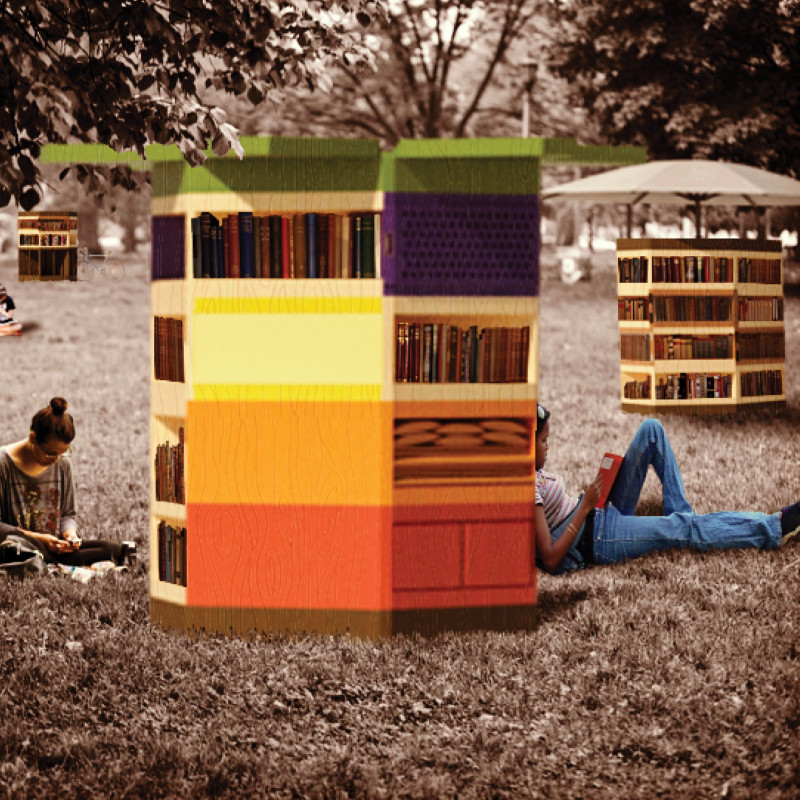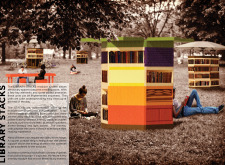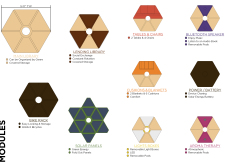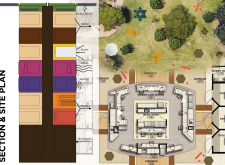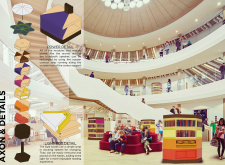5 key facts about this project
The LIBRARY STACKS modular system represents a modern approach to library design, focusing on flexibility and user engagement. Set in adaptable spaces, the system is designed to create functional reading areas. By emphasizing modularity, the design facilitates easy reconfiguration to meet different needs, fostering an inviting environment suited for reading and community interactions.
Main and Lending Library Modules
Central to the design are the main library and lending library modules. The main library module provides a structured area for book lending, while the lending library encourages social exchange among users. This combination promotes a culture of sharing and collaboration, making the library an important part of the community.
Utility and Amenity Modules
Practicality is evident in the utility modules, which feature bike racks, solar panels, and power/battery systems. These components enhance the library's function and reflect a commitment to sustainability through renewable energy. The amenity modules add to the experience with tables and chairs, cushions and blankets, Bluetooth speakers, aroma therapy, and light boxes, catering to various user preferences and enhancing the reading atmosphere.
User-Centric Design
Ease of navigation is prioritized with a color-coded organization system. This helps users locate resources without difficulty. Each amenity module includes shelving for a variety of genres, ensuring ample access to literature and promoting literacy. The design also integrates a copper contact strip that allows for charging electronic devices, addressing modern technological needs.
A distinctive feature of the LIBRARY STACKS system is its ability to promote community interaction while offering spaces for individual quiet reflection. Various configurations allow users to move between shared and private areas, adapting the library's atmosphere to suit their specific reading habits.


